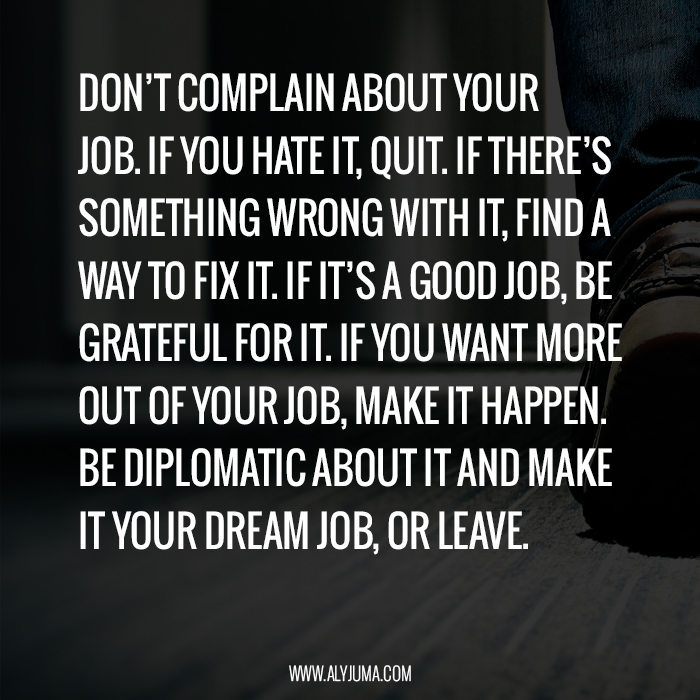I had a good job. I worked with good people, I had flexible hours, I was well paid, there wasn’t much to complain about, yet I was still unhappy.
So after weeks of agonizing self-reflection and asking myself what I really wanted, I finally made the jump: I quit.
I didn’t have a specific plan in place, but I had a few options that I wanted to properly explore. More importantly I had a supportive wife ready to be the bread-winner and enough savings squirreled away that I could afford to take the plunge.
That’s not to say that it was an easy decision. I was scared beyond belief, simply because I was entering the unknown, but I was also excited to know that it was on me to figure it out.
When I told my bosses and colleagues, they all kind of looked at me funny. Why would you want to leave? What do you mean you don’t have another job lined up? You don’t know what you’re doing next?
All valid questions, but it also made me realize that this was right for me. Most people are afraid of that level of uncertainty, but I think it’s only a good thing. It was that disconnect from how I saw the situation and how they saw it, which made it even more clear that I was making the right choice.
Of course, the driving force was that my job simply wasn’t doing it for me anymore. This is why.
1. I stopped growing.
Probably the biggest issue was that I was no longer growing as a person. I wasn’t learning anything new and I wasn’t facing new challenges.
Work had become too linear. I knew how to solve every problem I came across and hardly faced uncertainty. The single rule for a successful career is growth and I wasn’t growing.
2. I lost all motivation.
In past years, I would get home from work and start working on my various ventures and projects. I was still motivated and inspired to do the things I enjoyed.
These past few months though, I had lost that motivation as well. I didn’t have the desire to continue making and tinkering with my various hobbies. I had lost all inspiration. While this may not be related to work alone, I believe it had a significant role to play.
3. I was too comfortable.
I was in the zone, but not the good one. I was in a comfort zone. Work was easy, life was cushy. I didn’t have to worry about money, I didn’t have to worry about losing my job, and I didn’t have to stress about my work.
A comfort zones is a beautiful place, but nothing ever grows there.
There was no stimulus left in my job to push me forward. Comfort is the enemy and it was also a clear sign that it was time to move on.
4. I realized the time was right.
When I look back on my career so far, I have moments that I’m proud of, but there also things that I still want to accomplish. The fact is, I’m not getting any younger.
The timing was right and the last thing I want is to regret not taking a chance on myself. I’m not telling you to quit your job. I am telling you that it may be the right choice if nothing else works.
I’m not telling you to quit your job. I am telling you that it may be the right choice if nothing else works.
Before I quit, I tried to turn my job into something more, but I couldn’t. I tried to rationalize why it could still work, but it didn’t. I tried to improve things on my own, but it was never enough.
I finally realized that quitting was simply the right choice, despite how scary it sounded. In retrospect I can see it was the right move, but I still struggle with that little voice in my head.
The voice that questions this crazy decision. You have no plan! You have no paycheck! What are you doing!?! I just have to tune that guy out because, at least for now, I control what happens next.
I’m focusing on my next ventures and we’ll see where it takes me. At the very least, I know I won’t have any regrets and after all, what’s the worse that could happen.
